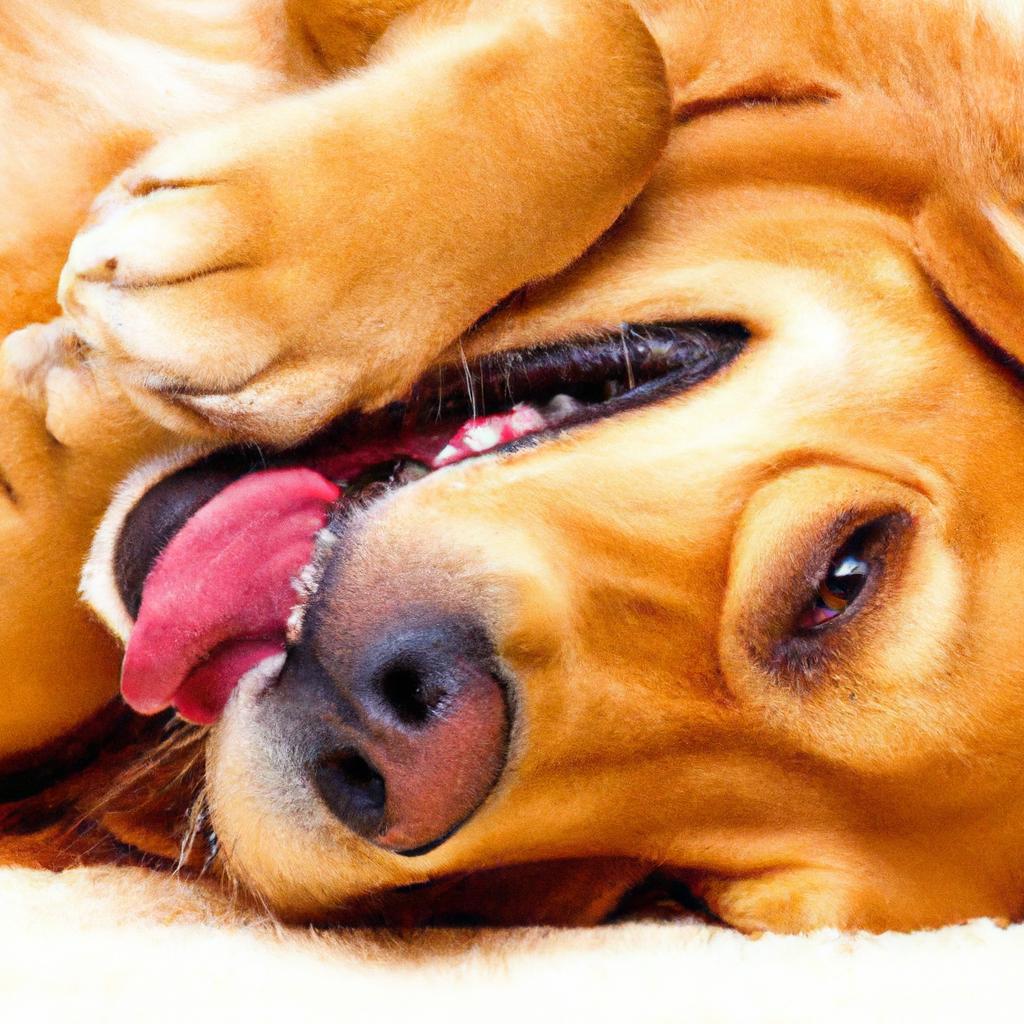Imagine bringing home a hypoallergenic dog, excited to welcome a furry friend without the worry of allergies. But then, you notice an unexpected odor lingering in your home. Many believe hypoallergenic dogs don’t smell, but the truth is, all dogs can have their unique scents. Regular grooming, proper hygiene, and a balanced diet can significantly reduce any odors. So, while hypoallergenic breeds may produce fewer allergens, they still require care to keep them—and your home—fresh. Embrace the joy of dog ownership, and invest in their well-being!
Contents
- Understanding the Myth: Do Hypoallergenic Dogs Really Have a Distinct Odor
- Factors Influencing Dog Odor: The Role of Breed, Grooming, and Environment
- Effective Grooming Practices to Minimize Odor in Hypoallergenic Breeds
- Choosing the Right Hypoallergenic Dog: Recommendations for Low-Odor Companions
- Q&A
Understanding the Myth: Do Hypoallergenic Dogs Really Have a Distinct Odor
When it comes to the world of canine companions, the term “hypoallergenic” often sparks curiosity and confusion. Many prospective dog owners believe that hypoallergenic breeds are entirely free from odors, but this is a misconception. While these dogs may produce fewer allergens, they are not devoid of the natural scents that all dogs possess. Understanding this nuance is crucial for anyone considering adding a hypoallergenic dog to their family.
Hypoallergenic dogs, such as Poodles and Bichon Frises, are known for their unique coat types that minimize shedding and dander. However, the absence of excessive fur does not equate to an absence of smell. Factors contributing to a dog’s odor include diet, hygiene, and overall health. A well-groomed hypoallergenic dog may have a more pleasant scent, but neglecting regular baths and grooming can lead to unpleasant odors, just like with any other breed.
Moreover, it’s essential to recognize that each dog has its own distinct scent, influenced by its breed, diet, and environment. While hypoallergenic breeds may produce less dander and saliva, they can still emit odors from their skin oils, ears, and mouths. Regular grooming and proper care can significantly reduce these smells, making it vital for owners to maintain a consistent hygiene routine. This includes frequent baths, ear cleaning, and dental care to ensure that your furry friend remains fresh and clean.
while hypoallergenic dogs may be a better choice for allergy sufferers, they are not entirely odor-free. Understanding that all dogs have a natural scent is key to setting realistic expectations. By prioritizing grooming and health care, owners can enjoy the companionship of their hypoallergenic pets without being overwhelmed by unpleasant odors. Embracing the unique characteristics of these breeds will lead to a more fulfilling and enjoyable relationship with your four-legged friend.
Factors Influencing Dog Odor: The Role of Breed, Grooming, and Environment
When it comes to dog odor, several factors come into play, with breed being one of the most significant. Certain breeds are genetically predisposed to produce more oils and have different skin types, which can contribute to a stronger scent. For instance, breeds like Bloodhounds and Beagles are known for their distinctive smells due to their unique skin and coat characteristics. In contrast, hypoallergenic breeds such as Poodles and Bichon Frises tend to produce fewer allergens and oils, which can lead to a more pleasant aroma. Understanding the breed-specific traits can help potential dog owners make informed decisions about which dog might best suit their lifestyle and preferences.
Grooming practices also play a crucial role in managing dog odor. Regular grooming not only helps to remove dirt and debris but also reduces the buildup of oils that can lead to unpleasant smells. Bathing your dog with appropriate shampoos, brushing their coat, and cleaning their ears can significantly minimize odor. Additionally, some owners may choose to invest in professional grooming services to ensure their pets are well-maintained. A consistent grooming routine can make a world of difference in keeping your dog smelling fresh and clean.
The environment in which a dog lives can further influence its odor. Dogs that spend a lot of time outdoors may pick up scents from their surroundings, such as grass, mud, or other animals. Conversely, dogs that primarily stay indoors may have less exposure to these odors but can still accumulate smells from their living space. Factors such as humidity, temperature, and cleanliness of the home can all affect how a dog’s scent develops. Maintaining a clean environment and providing adequate ventilation can help mitigate any lingering odors.
Lastly, diet plays an often-overlooked role in a dog’s overall smell. A balanced diet rich in high-quality ingredients can lead to healthier skin and coat, which in turn can reduce odor. Foods that contain fillers or artificial ingredients may contribute to skin issues, leading to increased odor. Owners should consider consulting with a veterinarian to determine the best dietary choices for their dogs, ensuring they not only smell good but also feel great. By addressing these various factors, dog owners can enjoy the companionship of their pets without the worry of unpleasant odors.
Effective Grooming Practices to Minimize Odor in Hypoallergenic Breeds
Maintaining a clean and odor-free environment for hypoallergenic breeds requires a commitment to effective grooming practices. Regular grooming not only helps to keep your dog looking its best but also plays a crucial role in minimizing any potential odors. Establishing a consistent grooming routine can significantly enhance your dog’s hygiene and overall well-being.
One of the most important aspects of grooming is **bathing**. While hypoallergenic dogs typically produce less dander and are less likely to trigger allergies, they still require regular baths to remove dirt, oils, and any lingering odors. Aim to bathe your dog every 4 to 6 weeks using a gentle, hypoallergenic shampoo. This will help to keep their coat clean and fresh without stripping away essential oils that protect their skin.
In addition to bathing, **brushing** is essential for maintaining a healthy coat. Regular brushing helps to remove loose hair, dirt, and debris, which can contribute to odor. Depending on the breed, you may need to brush your dog several times a week or even daily. Use a suitable brush for your dog’s coat type to ensure effective grooming. This not only keeps their coat looking great but also promotes better air circulation, reducing the chances of odor buildup.
Choosing the Right Hypoallergenic Dog: Recommendations for Low-Odor Companions
When it comes to selecting a hypoallergenic dog, it’s essential to consider breeds that not only minimize allergens but also have a reputation for being low-odor companions. Certain breeds are known for their unique coat types and grooming needs, which can significantly reduce the likelihood of unpleasant smells. Here are some recommendations for hypoallergenic dogs that are less likely to leave a scent trail in your home:
- Poodle: Available in standard, miniature, and toy sizes, Poodles have a curly coat that traps dander and hair, preventing it from spreading in your environment. Regular grooming helps maintain their coat and keeps odors at bay.
- Bichon Frise: This breed boasts a soft, curly coat that doesn’t shed much, making it a great option for allergy sufferers. Their cheerful demeanor and low odor make them delightful companions.
- Portuguese Water Dog: Known for their hypoallergenic coat, these dogs are not only low-shedding but also have a unique texture that helps minimize odors. They are energetic and intelligent, making them wonderful family pets.
- Shih Tzu: With their long, flowing coats, Shih Tzus require regular grooming, which helps control both allergens and odors. Their affectionate nature and small size make them ideal for various living situations.
In addition to breed selection, proper grooming and maintenance play a crucial role in odor control. Regular baths, brushing, and ear cleaning can significantly reduce the buildup of oils and dirt that contribute to unpleasant smells. Investing in high-quality grooming tools and products specifically designed for hypoallergenic dogs can further enhance your pet’s cleanliness and comfort.
Another factor to consider is the dog’s diet. A balanced, high-quality diet can influence your dog’s overall health and, consequently, their odor. Foods rich in omega fatty acids can promote healthy skin and coat, reducing the likelihood of skin issues that may lead to unpleasant smells. Consult with your veterinarian to determine the best dietary options for your hypoallergenic companion.
Lastly, creating a clean living environment is essential for minimizing odors. Regularly washing your dog’s bedding, toys, and any areas they frequent can help keep your home smelling fresh. Additionally, using air purifiers and maintaining good ventilation can further enhance the air quality in your home, making it a pleasant space for both you and your hypoallergenic dog.
Q&A
-
Do hypoallergenic dogs have a smell?
Hypoallergenic dogs can still have a smell, but it is often less pronounced than that of non-hypoallergenic breeds. The term “hypoallergenic” refers to the reduced likelihood of triggering allergies, not the absence of odor. Regular grooming and bathing can help minimize any potential smells.
-
What causes dog odor?
Dog odor is typically caused by natural oils, bacteria, and dirt that accumulate on their skin and fur. Hypoallergenic breeds tend to shed less dander and hair, which can contribute to a cleaner environment and potentially less odor. However, factors like diet, health, and grooming practices play a significant role in overall smell.
-
How can I reduce my hypoallergenic dog’s smell?
To minimize odor, consider the following:
- Regular grooming and bathing
- Maintaining a balanced diet
- Cleaning their living area frequently
- Using pet-safe deodorizing products
These practices can help keep your hypoallergenic dog smelling fresh and clean.
-
Are some hypoallergenic breeds smellier than others?
Yes, some hypoallergenic breeds may have a stronger odor than others due to their coat type and grooming needs. Breeds like the Poodle or Bichon Frise are often noted for having less odor, while others may require more frequent grooming to manage smell. Researching specific breeds can help you find one that aligns with your preferences.
while hypoallergenic dogs may produce fewer allergens, they are not entirely odor-free. Regular grooming and proper care can significantly reduce any smells. Choose wisely, and enjoy a cleaner, more pleasant home with your furry companion.

大家好,我是彼得潘,專業的手法身體治療師。我喜歡探索和研究各種主題,並透過與人工智慧的合作分享專業、實用、有趣的文章。我們定期進行人工審核,以確保內容的準確性。如果您發現文章中有任何不準確的地方,請隨時與我們聯繫,我們會及時糾正。您可以透過 [email protected] 與我們聯繫。



